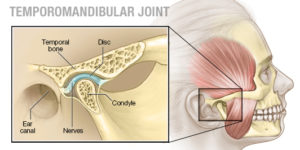TMJ Jaw Pain in Downtown Brooklyn & Lower Manhattan

Our award-winning TMJ specialists at Downtown Pain Physicians offer jaw pain treatments to our patients in Manhattan & Brooklyn.
No matter the type of joint pains you are going through, come to our medical office, tell us about it, and let us get you treated. Send your pains away with just a visit to our office today. Having pains when chewing is not new to most people, these pains tend to disrupt the joy of eating our favorite meal, some even go as far as making one unable to communicate as they usually do. Temporomandibular jaw pains are one of those pains that affect chewing, let see what the cause is and prevent it.
FAQ: TMJ Disorder (TMD)
What Is The Temporomandibular Joint?
A Temporomandibular Joint is the joint that connects the jaw to the skull. Whenever this joint is damaged or injured, it will lead to a localized pain disorder known as temporomandibular joint syndrome. The joint is responsible are moving the jaw up and down and side to side, so one can chew, talk, and yawn. TMJ syndrome is a disorder of the jaw muscles and nerves which is caused by inflammation or injury to the TMJ.
The injured or inflamed temporomandibular joint leads to:
- pain with chewing
- crackling
- clicking
- popping of the jaw
- nerve inflammation
- swelling on the sides of the face
- headaches including migraines
Temporomandibular joint syndrome (TMJ) can also be referred to as temporomandibular joint disorder (TMD).
What Causes TMJ Syndrome?
To date, what causes TMJ syndrome is yet to be known. However, pain physicians believe symptoms arise when the muscles of the jaw or with the parts of the joint itself have problems. In other words, injury to the joint, the jaw, or the muscles of anyone’s neck or head can lead to TMD. Apart from the above listed, other causes are:
- misalignment of the teeth or jaw
- teeth clenching or grinding
- poor posture
- gum-chewing stress
- orthodontic braces
- arthritis
What Are TMD Symptoms And Signs?
The main TMD symptom is pain in the jaw joint. The joint is located in front of the ear, and pain associated with TMJ may involve the eye, face ear, forehead, or neck.
-
“SERIOUSLY THE BEST”
Dr Raval is seriously the best. A Dr who truly cares about his patients and not about money. He takes his time to listen. He takes his time to actually listen to you. He is one of the most compassionate doctors and he truly knows his stuff. Sophia is also so very helpful. Everyone there is nice
-
“PERSONABLE AND FRIENDLY”
Dr. Raval was very personable and friendly. answered all my questions and concise. office was very clean and beautiful!
Other signs and symptoms of TMD include;
- Difficulty in chewing
- Pain at the base of the tongue
- Pain that feels like a toothache
- Pain, swelling, or a lump in the temple area
- Ringing or popping sounds in the ears (tinnitus)
- Difficulty in chewing
- Pain at the base of the tongue
- Pain that feels like a toothache
- Pain, swelling, or a lump in the temple area
- Ringing or popping sounds in the ears (tinnitus)
- Shoulder pain
- Locking or dislocation of the jaw (usually after widely yawning), referred to as lockjaw
- Popping/clicking of the jaw (crepitus)
- Blurred vision
- Earache or sounds of cracking in the ears
- Headaches, including migraines
- Muscle spasms in the jaw
- Sore jaw or neck muscles
- Mouth pain, facial pain, cheek pain, jaw pain, or chin numbness or tingling
Book Appoinments
212.404.8070Does insurance cover TMJ treatments?
Yes, usually medical insurance can cover many TMJ treatments, speak with your TMJ pain physician to see which they accept.
How is TMD treated?
At-home treatments:
- Taking ibuprofen
- Wearing a nightguard
- Heat or cold pack
Nonsurgical treatment:
- Transcutaneous electrical nerve stimulation (TENS): Low-level electrical currents that relax the jaw and reduce jaw pain.
- Ultrasound: Treatment that is applied to the TMJ to reduce pain or improve movement
- Trigger-point injections: Pain medication is injected into muscles of the face to relieve oral pain.
- Radio wave therapy: Creates a low-level electrical stimulation to the joint to increase blood flow and reduce jaw pain
Surgical treatment:
- Arthrocentesis: when the jaw is locked shut or swollen, liquids are injected into the joint to wash it out
- Arthroscopy: with a small incision in front of the ear the doctor can insert an endoscope to view the damage and scar tissue inside the jaw and remove or wash it if necessary.
- Open-joint surgery: a full surgery under anesthesia, used for the most severe cases.
-
Dr. Raj Raval, M.D.
- Board Certified
- Interventional Pain & Musculoskeletal Medicine Specialist
-
Education & training
- SUNY Health Science Center
- Rutgers University Fellowship
-
Dr. Raphael Jaramillo, MD
- Board Certified
- Interventional Pain & Musculoskeletal Medicine Specialist
-
Education & training
- Touro College of Osteopathic Medicine
- New York University
- Rutgers University

